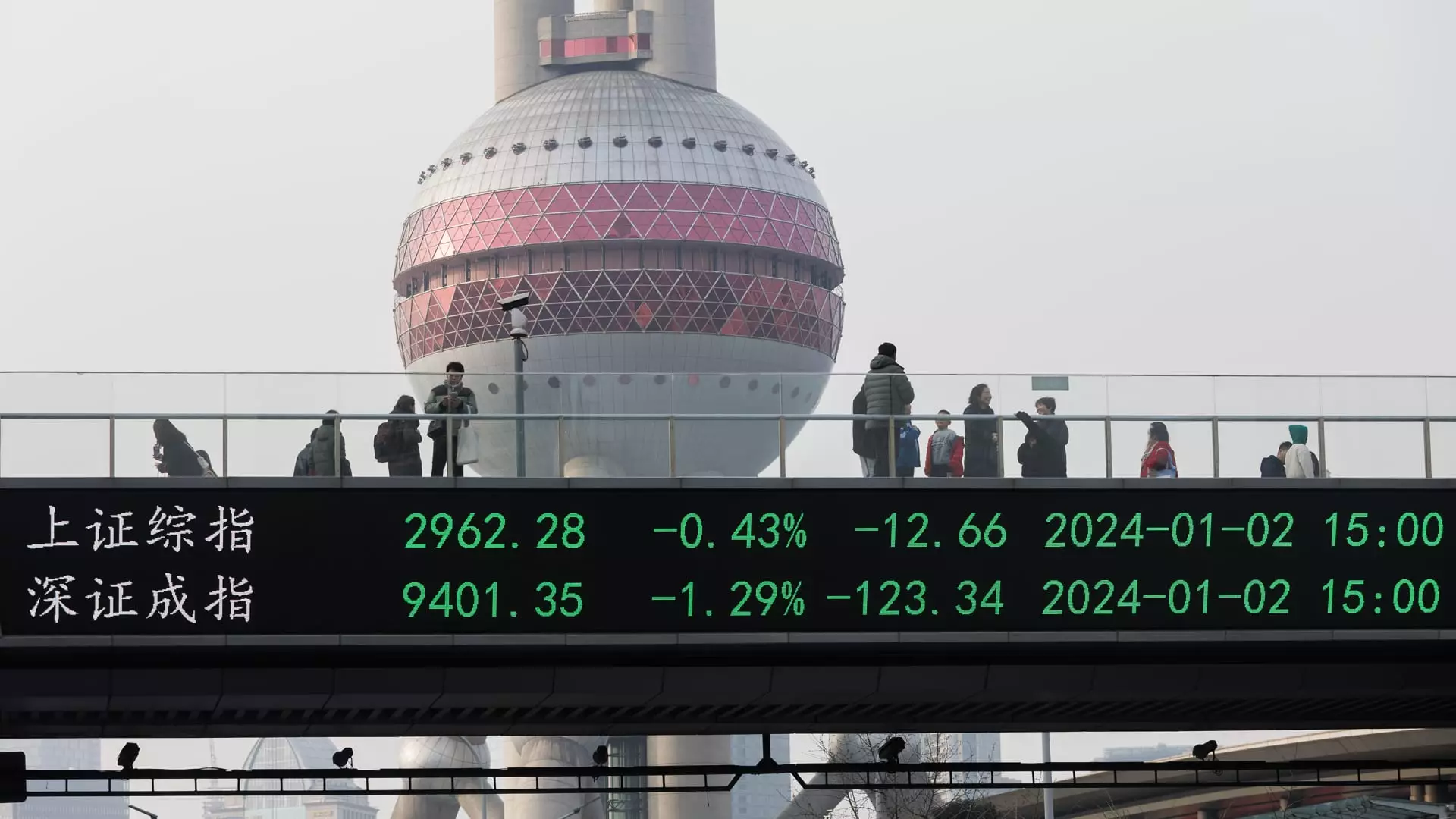In a remarkable display of resilience, exchange-traded funds (ETFs) tracking Chinese stocks have shown notable performance in overseas markets, particularly in the United States, even with mainland exchanges shuttered for a week-long holiday. This unyielding rally emphasizes the growing enthusiasm among investors for the Chinese equity market, reflecting a broader sentiment shift that has emerged following the Chinese government’s announcement of significant stimulus measures. Notably, ETFs such as the KraneShares CSI China Internet ETF (KWEB) and the iShares China Large-Cap ETF (FXI) have experienced notable upticks, showcasing a bullish trend indicative of renewed investor confidence.
The driving force behind this bullish sentiment can be traced back to a series of vigorous stimulus measures released by the Chinese government aimed at rejuvenating an economy beleaguered by years of regulatory crackdowns and sluggish growth. These measures include unprecedented rate cuts and reductions in the reserve requirements for banks, which directly influence liquidity in the market. As such, traders and investors are cautiously optimistic, interpreting these fiscal policies as a signal that the government is committed to structural reform and economic stabilization.
Experts in the field are vocal about this renewed optimism. Scott Rubner, a tactical specialist at Goldman Sachs, conveyed a sense of unprecedented demand for Chinese equities, suggesting that this surge might indicate a transformational moment for the market. Such sentiments suggest that, despite historical downturns, the current economic interventions could pave the way for a long-term recovery, altering the trajectory of Chinese stocks significantly.
The dramatic changes in market dynamics have not gone unnoticed by some of the heavyweights in investment management. David Tepper, founder of Appaloosa Management, has signified his strategy of aggressive investment in anything linked to China, further validating the notion that confidence in the Chinese economy is being restored. This statement represents not just a personal investment strategy, but also a reflection of broader investor behavior as they scramble to capitalize on perceived opportunities within the Chinese market.
Meanwhile, companies such as JD.com and Pinduoduo (PDD) demonstrate the tangible effects of this optimism, exhibiting substantial share price increases over consecutive trading days. The impressive performances by these e-commerce giants underline the growing belief among investors that the worst may be over for Chinese stocks. The market’s recovery, therefore, is not merely a fleeting reaction but rather an indication that investors are reassessing the intrinsic value of Chinese companies.
Concluding Thoughts on the Future of Chinese Equities
As the dust settles from recent market movements, it remains crucial for investors to understand the undercurrents driving this performance. The interplay between government support and investor appetite cultivates an environment ripe for resurgence. While uncertainties still loom — both within China and from external factors such as global market pressures — the current trajectory provides a glimpse into a potentially rejuvenated investment landscape. Taking cues from significant market figures and existing economic indicators, it becomes evident that there is cautious optimism surrounding Chinese equities, indicating that investors are prepared to embrace new realities in an evolving economic framework.

